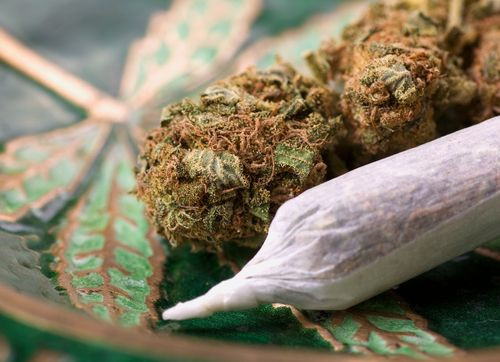Smoking Marijuana Does Not Lower IQ Scores, But Alcohol Use May

Cannabis critics and cannabis activists are constantly at odds over whether or not marijuana use can lead to cognitive declines in attention, memory, and learning. A recent study presented at the annual congress of the European College of Neuropsychopharmacology (ECNP) in Berlin has revealed that “casual” marijuana use does not lead to lower IQ scores. However, “heavy” marijuana use did lead to poorer in-school examination scores.
"Our findings suggest cannabis may not have a detrimental effect on cognition, once we account for other related factors, particularly cigarette and alcohol use,” Claire Mokrysz, lead researcher from University College London, said in a statement. “This may suggest that previous research findings showing poorer cognitive performance in cannabis users may have resulted from the lifestyle, behavior, and personal history typically associated with cannabis use, rather than cannabis use itself.”
Mokrysz and her colleagues gathered data using the Avon Longitudinal Study of Parents and Children (ALSPAC), also known as "Children of the 90s.” Just over 2,610 children born in the Bristol area of the UK in 1991 and 1992 took IQ tests at the ages of 8 and 15. Upon taking their second IQ test at 15, the children were asked to complete a survey gauging cannabis use. After excluding certain children from the final portion of the study for reasons that included a head injury, the research team ended up with a sample group of 2,235 children. A regression scale was used to correlate cannabis use and intellectual performance.
When researchers took into account other high-risk behaviors that marijuana can lead to, including alcohol, tobacco, and other illicit drug use, they found no link between casual marijuana use and lower IQ scores at the age of 15. On the other hand, children who used marijuana heavily, meaning at last 50 times by the time they reached 15, scored three percent lower on compulsory school examinations taken at 16 compared to children who did not report heavy marijuana use. The research team added that alcohol use on its own also led to a lower IQ score.
“People often believe that using cannabis can be very damaging to intellectual ability in the long-term, but it is extremely difficult to separate the direct effects of cannabis from other potential explanations,” Mokrysz added. “Adolescent cannabis use often goes hand in hand with other drug use, such as alcohol and cigarette smoking, as well as other risky lifestyle choices. It's hard to know what causes what — do kids do badly at school because they are smoking weed, or do they smoke weed because they're doing badly? This study suggests it is not as simple as saying cannabis is the problem.”
A 2012 study published in The Lancet revealed that marijuana is not only the most popular drug in the United States, but also in the rest of the world. Although marijuana is considered the most widely used drug worldwide, prescription painkillers, such as Vicodin, Oxycontin, and codeine, kill the most people. All of the drugs included in the study, including marijuana, opioid painkillers, cocaine, and amphetamines, were abused most by men in their 20s.
"This is a potentially important study because it suggests that the current focus on the alleged harms of cannabis may be obscuring the fact that its use is often correlated with that of other even more freely available drugs and possibly lifestyle factors,” said Commenting ECNP Chair Professor Guy Goodwin (Oxford). “These may be as or more important than cannabis itself."
Source: Mokrysc C, et al. No relationship between moderate adolescent cannabis use, exam results or IQ, large study shows. Annual Congress of the European College of Neuropsychopharmacology (ECNP). 2014.



























